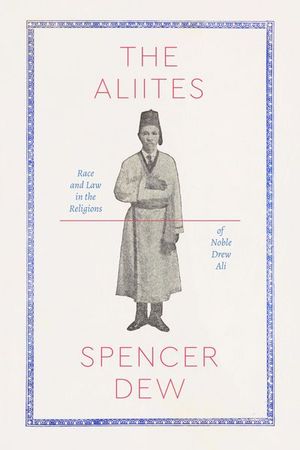The Aliites
Published by The University of Chicago Press
“Citizenship is salvation,” preached Noble Drew Ali, leader of the Moorish Science Temple of America in the early twentieth century. Ali’s message was an aspirational call for black Americans to undertake a struggle for recognition from the state, one that would both ensure protection for all Americans through rights guaranteed by the law and correct the unjust implementation of law that prevailed in the racially segregated United States. Ali and his followers took on this mission of citizenship as a religious calling, working to carve out a place for themselves in American democracy and to bring about a society that lived up to what they considered the sacred purpose of the law.
In The Aliites, Spencer Dew traces the history and impact of Ali’s radical fusion of law and faith. Dew uncovers the influence of Ali’s teachings, including the many movements they inspired. As Dew shows, Ali’s teachings demonstrate an implicit yet critical component of the American approach to law: that it should express our highest ideals for society, even if it is rarely perfect in practice. Examining this robustly creative yet largely overlooked lineage of African American religious thought, Dew provides a window onto religion, race, citizenship, and law in America.
In The Aliites, Spencer Dew traces the history and impact of Ali’s radical fusion of law and faith. Dew uncovers the influence of Ali’s teachings, including the many movements they inspired. As Dew shows, Ali’s teachings demonstrate an implicit yet critical component of the American approach to law: that it should express our highest ideals for society, even if it is rarely perfect in practice. Examining this robustly creative yet largely overlooked lineage of African American religious thought, Dew provides a window onto religion, race, citizenship, and law in America.
BUY NOW FROM
COMMUNITY REVIEWS

